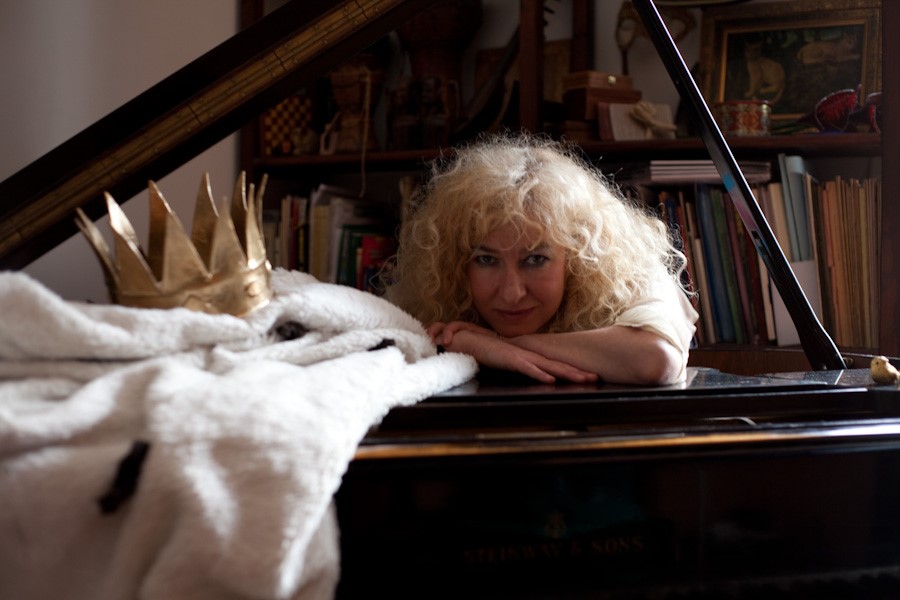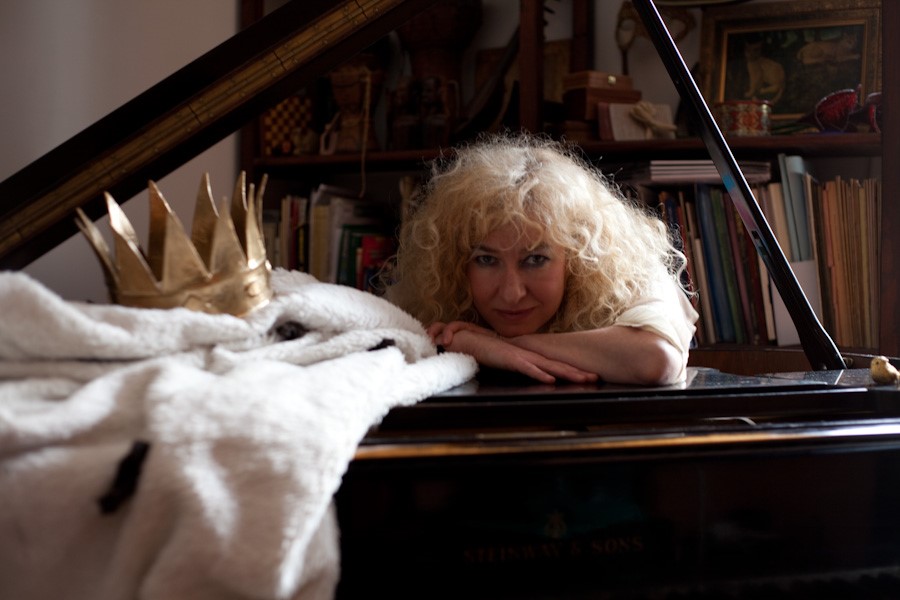About
Alessandra Celletti comes from a purely classical background, but her musical and artistic experiences multiply with sudden deviations in a very personal music world; her unique and irreplaceable center of gravity is the piano. She made her debut in 1994 with "Les sons et les parfums", a collection of recordings dedicated to Debussy, Ravel and Satie and since then she released a great number of albums, both as author and pianist.
All through these years many have been the collaborations: with the Swedish conceptual artist Paulina Wallenberg Olsson, the saxophonist Nicola Alesini, the British composer Mark Tranmer (aka GNAC) with whom she released the album "The Red Pages"; the free movement of sounds has also made possible the meeting between Alessandra Celletti and one of the leading exponents of contemporary experimental electronic music, Hans Joachim Roedelius with whom, in 2009, she composed the album "Sustanza di cose sperata” (“Substance of things hoped for”), in the same year of "Alessandra Celletti plays Baldassarre Galuppi" an album dedicated to the venetian author of the eighteenth century.
2011 was the year of "Sketches of Sacagawea", a printed cardboard box containing a book and CD in a limited edition of 200 numbered copies, dedicated to the Native American heroin Sacagawea; at the same time a second special project was conceived with the German surrealist artist Jaan Patterson: an album soundtrack that accompanied the release of George Bataille’s previously unreleased book, "WC", for the publisher Transeuropa.
In the summer of 2013 Alessandra Celletti has been the protagonist of a daring bet, bringing her piano around Italy aboard a truck in the "piano piano on the road" tour. The entire route has become a documentary produced by the independent company Primafilm creative distrinct and it was selected in competition at the Edmonton International Film Festival in Canada, while the trailer was awarded the "Premio Roma Videoclip - Cinema Meets Music", XXI edition.
In the spring of 2015 Istituto Luce has produced the documentary "Mio Duce ti scrivo", directed by Massimo Martella, a documentary on the amazing collection of letters that many Italians wrote to Benito Mussolini (the Duce) during the decades of his dictatorship; the original soundtrack was composed by Alessandra Celletti; the documentary, has been released as DVD.
During 2016 Alessandra Celletti has focused on "Working on Satie", a project created together with figurative artist Onze. The work was created as a tribute to French composer of which in 2016 marks the one hundred fiftieth anniversary of the birth; initially conceived as a live show, Onze and Celletti decided to release a CD and a DVD that have been published on October 26th to coincide with the debut at Romaeuropa Festival.
2018 begins with the composition of the soundtrack of the documentary "In the name of Antea" produced by Istituto Luce and directed by Massimo Martella, dedicated to the history of the works of art during the Second World War, while Alessandra Celletti turns her attention once again to the musical world of G.I.Gurdjeff with her twentieth album, "Sacred Honey", coming out on April 15th.
Alessandra Celletti's music is a kaleidoscope, an imaginary visual and audio world, that, with tenacity and tireless, swirling enthusiasm, she chooses to represent, in studio and on stage in concert: her live dates are moments of rare intensity.
instagram: https://www.instagram.com/alessandracelletti_official/
spotify: https://open.spotify.com/artist/0BbHILJDz4eN90gbl1mHZj?si=fEmC8y_oRT-P73ie53xvfg
bandcamp: https://alessandracelletti.bandcamp.com/
Youtube: https://www.youtube.com/user/alesscell

